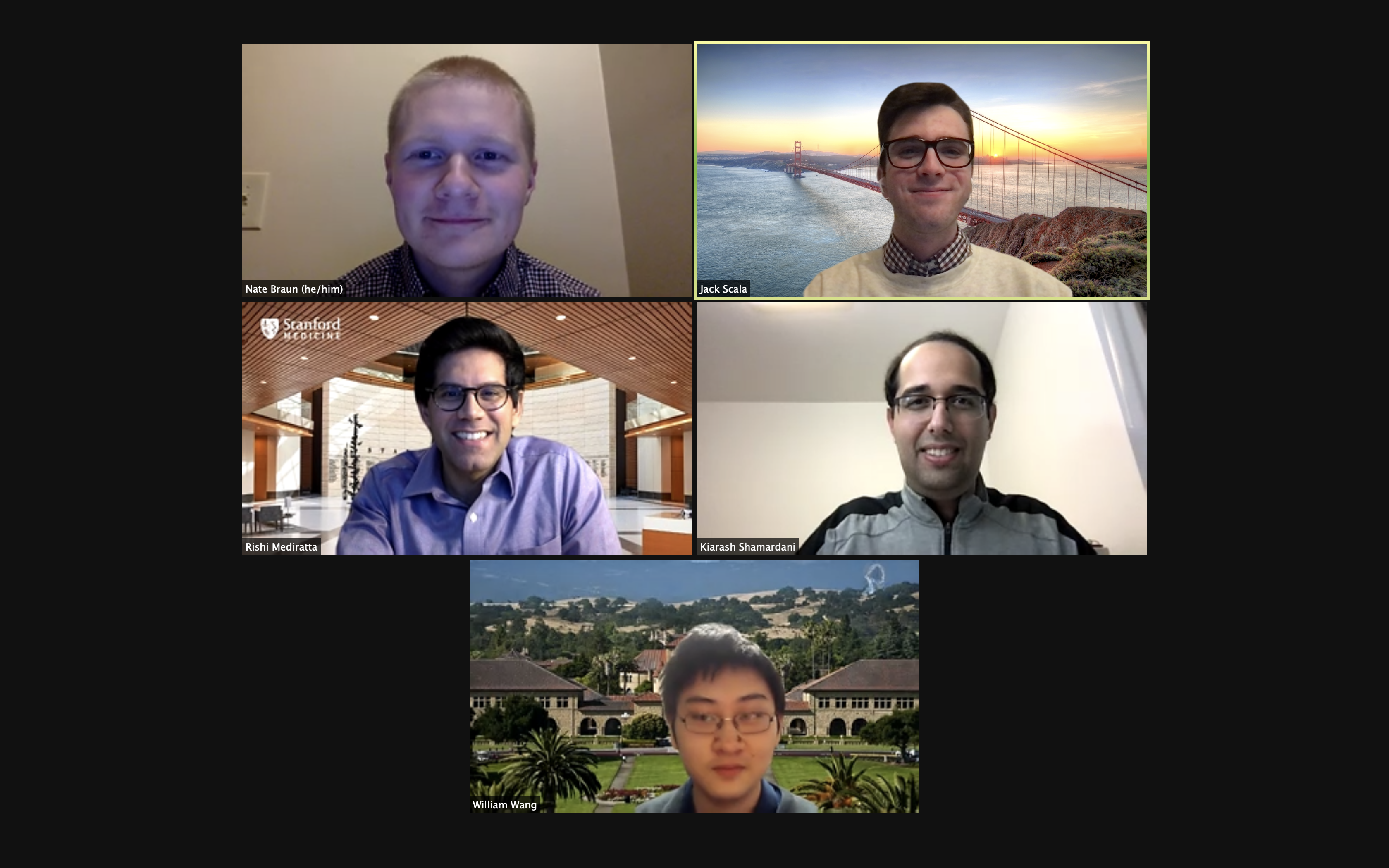In PEDS 220: “COVID-19 Elective,” graduate and undergraduate students come together to take a look at the science behind COVID-19 as well as the social, economic and psychological impacts of the pandemic. Additionally, students are provided the opportunity to develop a mentored, quarter-long project on the subject.
The course was initially developed last spring by Stanford School of Medicine clinical assistant professor Rishi Mediratta when he sensed “a clear hunger from undergraduate and graduate students to learn more about the pandemic they are currently experiencing.”
In its first iteration, the course discussed “the nuts and bolts” of virology, epidemiology and modeling of what was then considered to be a new, emerging virus, according to Mediratta.
However, Medirattta said the course has “evolved as the pandemic has evolved.” In the fall, it was updated to include conversations on advanced medical care, the pandemic’s relationship with schools and its impact on the 2020 presidential election. Now in its third installment, the course is focusing on the ethics and distribution of vaccines and racial and gender inequities in health care.
Mediratta wanted the structure of the course to be guided by the thought-provoking questions and discussions students had on Slack and Zoom with lecturers combined with expertise on a wide range of COVID-19-related topics.
Calling the pandemic “a behemoth of a crisis,” Jack Scala ’24 took the fall edition of the course to learn more about the pandemic and what he can do to help as a frosh. His involvement in breakout discussion sessions inspired him to become a teaching assistant for the course.
“Throughout the course, I realized that everybody in their own way can contribute something meaningful to discussions and to the efforts of curbing the pandemic,” Scala said.
The course creates opportunities for project mentorship and sponsorship to emphasize community engagement. Certified as a Cardinal Course by the Haas Center for Public Service, PEDS 220 offers an extra two-unit option for students “to address a unique part of the COVID-19 pandemic” by developing a project mentored by Mediratta and the teaching staff.
“As a physician, I am someone who takes action,” Mediratta said. “Before the start of fall quarter, the course staff and I applied and were approved for a grant through the McCoy Family Center for Ethics in Society to sponsor projects focused on real-time COVID education in preparing for future crises education.”
Amy Bugwadia, a first-year master’s student in Community Health and Prevention Research, took advantage of this option to explore a topic outside of her graduate program.
“I live with a few chronic illnesses, so I worked with a few different non-profits, including Health Advocacy Summit, that are all patient-centric, focused on education, support and advocacy specifically for young adults living with chronic diseases,” Bugwadia said to The Daily. “I saw this opportunity to realize that the pandemic has greatly shifted the way that we as chronically ill folks are able to exist in this world by creating a resource guide for transitioning from pediatric to adult care in the COVID-19 pandemic.”
Scala also took advantage of this option during fall quarter and organized an International Frontiers and COVID-19 Research symposium, bringing in scientists from the Stanford School of Medicine, University of California San Francisco School of Medicine and the Pasteur Institute to give introductory-level talks about their COVID-19 research.
“It was a really rewarding experience, and I wanted to help others realize their potential to make a difference during this trying time,” Scala said.
“What I have learned through this course is that we don’t need to have all the knowledge to teach a course to a community,” Mediratta said. “Knowing that we can create and teach a class that is well-received, that is impactful and that inspires students on a topic that is evolving is a strong argument for how all students can have a strong impact and become a part of the solution to this pandemic.”
Contact Jordan John Lee at jjslee22 ‘at’ stanford.edu.
